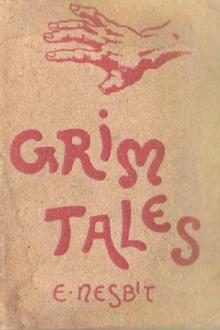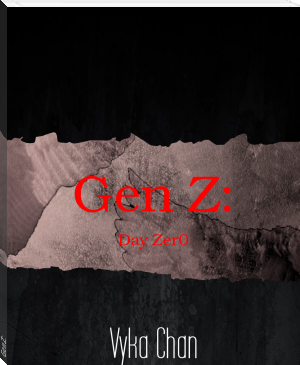Callisto 2.0 by Susan English (love story novels in english txt) 📖

- Author: Susan English
- Performer: -
Book online «Callisto 2.0 by Susan English (love story novels in english txt) 📖». Author Susan English
“Hi, Mom.”
“How are you, sweetheart?”
“I’m doing great.”
She frowned. “Are you still on that space station?” She said the words “space station”
as if it were an old piece of gum stuck to the bottom of her shoe. When I had told her before leaving Earth the research facility was in orbit around the Moon, she had been less than thrilled.
“Uh-huh.”
“I don’t understand why that contraption doesn’t crash into the Moon. Are you sure it’s safe?”
I laughed. “Of course.”
My mother shook her head, as if she couldn’t believe my naiveté.
“How are you and Dad?”
“We’re doing fine. I just got back from church. Your father stayed to play dominoes with some friends, but I wanted to get home and put my feet up. It was such a good Bible study class. You know I think the world of Reverend Talbert.”
“I know you do, Mom.”
Her face clouded. “He was just talking about all those people living on the Moon, how it isn’t natural.”
“What does it mean to be ‘natural’?” I asked, then bit my tongue, mentally chastising myself. I knew better than to get her started. Our interactions were so much smoother when we only talked about simple things.
“Things that are written in the Bible.”
I resisted the urge to slap my forehead. “I don’t think the Bible prohibits people living on the Moon, does it?”
“No, not specifically, but you have to know how to read between the lines.”
Or to interpret it to fit your world view, I said to myself, then felt mean.
“That’s what Reverend Talbert says,” my mom continued. “He’s a biblical scholar.”
“I’m sure he’s a very intelligent man.”
My mom squinted her eyes at me, as if suspecting sarcasm in my tone. “I’ll be glad 102
when you’re back with your feet on Planet Earth, where you belong.”
“I know.”
“I don’t know where you got that brain of yours. Sure wasn’t from me.” It was one of her most frequent comments with respect to me.
“How are things at home?”
She brightened. “Your father and I are thinking of renovating the kitchen. He wants to do the work himself, using real wood, but I don’t know ….” Her voice trailed off.
“He’s a skilled carpenter. He’ll do a great job.” My father had the mind of an engineer, which served him well in his profession as a hovercar mechanic. Our best conversations, though infrequent, were almost always about mechanical problems, and our most enjoyable interactions consisted of fixing things around the house, or building something together when I still lived at home.
My mother looked doubtful. “I know he would, sweetheart, but real wood is expensive, and his back’s not too good.”
I studied my mother’s face, filled with lines, and her hair, more grey than red. She was getting older, they both were. She was only seventy-two, and my father was seventy-four, but the years had not been kind to either of them. “Hire someone.”
“Oh, you know your father, stubborn as the day is long.”
“Try to convince him.” I would transfer money from my account to theirs. I didn’t need the generous wages accruing from my work for the Foundation—except for drinks at the bar with Marley, I hadn’t spent a penny. My parents weren’t poor, they were comfortable with my dad’s income and the guaranteed minimum wage, but still, a little extra couldn’t hurt. “Okay, I should go. Tell Dad I said hi.”
“I will, sweetheart. So nice to see you.”
“You, too. I love you.” I signed off.
Why was it so hard for me to call them? The lyrics of an old song popped into my head. As a teenager, I liked to search for music on the internet, songs to match my tumultuous, hormone-driven emotional storms. Ah, the joys of puberty. It went something like:
They were convinced they knew it al,
But their minds were so smal .
They couldn’t make room for me,
A girl who reached for the stars, dreaming of infinity.
The first time I listened to the words, I had sobbed for hours, and still, to this day, thinking of these lines in particular would bring tears to my eyes and an ache in my heart. It had made me realize how alone I was. My family could not find a place for a girl like me, a girl who longed for the stars. I was a stranger in my own life.
When I was accepted into the university, my extended family made lots of rather unsupportive comments, such as “What? You think just because you’re going to a big, 103
important college, you’re better than us?” That was from my cousin, Dennis. He was a real piece of work, that guy. His prejudices against anyone who thought in ways that differed from his intolerant, myopic, and chauvinistic world view ran so deep, his face was locked in a perpetual scowl. I felt sorry for his wife and kids.
Another comment from my mother’s uncle, Rob, speaking for himself and his wife, Lynda: “Why do you think you need an education? We never went to college and we’re doing fine.” Unlike my cousin, his words weren’t meant to be cruel; he didn’t understand. Out of all my extended family, they were my favorites. They, too, had, in their own way, reached for the stars, abandoning their hometown to travel across the continent, looking for opportunities, but they had gone too far, flown too close to the Sun like Icarus had done, and, like him, had been burned. Life had not been generous to them. Now, they lived in a double-wide trailer, barely scraping by on their meager guaranteed minimum wage income. Their only entertainment was talking about their physical ailments and keeping track of their medication.
Even my parents disapproved of my ambitions. When I had applied to Caltech, my father told me if I wanted to continue my education, there was a perfectly good community college in my hometown of Eureka, so why didn’t I enroll there and live at home? I could work at the mechanic’s shop with him, or the desalination plant. My parents couldn’t, or wouldn’t, understand Caltech was the top school not only in the country, but in all North America, and it was a tremendous achievement to be accepted with a full scholarship. My father, when we talked during those first few years of my undergraduate career, would complain, often bitterly, that the school was too far away, and I was being selfish, wanting to hurt him, punish him. It was then when I comprehended my intelligence was my ticket out. My mother begrudgingly accepted my aspirations, but my father had never forgiven me for leaving. And the truth was, in a certain sense, he was right. I did want to be far, far away, to be free to dream of a world of infinite possibilities.
Things improved dramatically for me once I went away to college and started studying physics. Physics was so elegant, so logical and organized, and my brain took to it like a fish to water. Finally, I was in my element, surrounded by my people, my clan. I rarely returned home to visit my family.
I glanced at my wrist computer. It was time for the social. I had missed dinner, but wasn’t hungry. Instead, I felt a real need to be in the company of my crewmates, to regain my sense of self.
Entering observation deck, I spotted Tanya sitting alone, gazing out the window at the Moon. I studied her profile as I floated over to her table: strong features, fair skin, honey-brown hair pulled back in a bun.
“May I join you?”
“Please do.” Tanya’s smile was warm and welcoming. I settled onto the chair, secretly relieved to have the chance to talk alone with Tanya. “What’s up, Calli?”
“I just talked to my mom.”
104
“And?” She looked at me expectantly.
I met her eyes, not knowing where to start.
Tanya was perhaps the most striking of all the crew because she was born a male, a tragic biological error, she called it. The unusual thing about Tanya was she hadn’t started hormone therapy pre-puberty. Because of the insistence of her family, she was forced to wait until she was eighteen to begin taking the hormones that would help her transition into becoming her true female self. “I don’t blame my parents,” she had told me one morning when we sat together during breakfast. “I know they didn’t understand and wanted me to be their son. It’s shocking that they were so resistant. But our town is ultraconservative. A reaction to the massive die-off back in the mid-2000s. Women in my hometown aren’t even allowed to get the implant to suppress menstruation.”
Hearing this, I ran my finger along the underside of my arm, where my own implant was located.
Tanya was from Texas, also of the former United States, a place which was hard hit when the disaster with the GMOs struck. The Texas ecosystem was almost completely wiped out, and there were only pockets of human survivors, many of whom stayed, forming insular communities, most with extreme philosophies, such as not allowing your child to take hormones to correct a biological mistake. Hard to imagine people could be so narrow-minded. But then again, there was my family, and we were from California, a country known for its progressive ideologies.
When Tanya reached adulthood, she was able to leave Texas and finally begin her hormone treatments, and go through gender reconstructive surgery. She still had the vestiges of an Adam’s apple, her voice was low and raspy, and her features were masculine, all traits which would not have developed had she started hormones pre-puberty.
I didn’t talk much about my family as a rule,
 If you are looking for a good book horror, you should visit our website. Electronic library is gaining popularity. Influenced by modern technology and the advent of new gadgets, people are increasingly turning to electronic libraries because it allows them to read online everywhere . Every reader thanks to his smartphone, laptop or computer, can visit our website at any time. Reading ebooks help people to make good use of free time. Our elibrary has a huge selection of genres for every taste and request.
If you are looking for a good book horror, you should visit our website. Electronic library is gaining popularity. Influenced by modern technology and the advent of new gadgets, people are increasingly turning to electronic libraries because it allows them to read online everywhere . Every reader thanks to his smartphone, laptop or computer, can visit our website at any time. Reading ebooks help people to make good use of free time. Our elibrary has a huge selection of genres for every taste and request.




Comments (0)